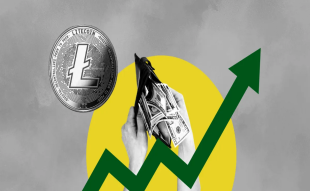Join Our Telegram channel to stay up to date on breaking news coverage
- What Entrepreneur Mark Cuban has clashed with securities official John Reed Stark on Twitter
- Why Cuban says the SEC’s lack of crypto oversight played a role in FTX’s collapse and the loss of investors’ funds
- What next Cuban is calling on the SEC to follow the example of other countries, such as Japan, and establish a clear regulatory framework
Billionaire entrepreneur Mark Cuban and former securities official John Reed Stark have once again clashed on Twitter over cryptocurrency regulations.
This time it is with regard to which party is chiefly accountable for the collapse of FTX and the consequences for creditors.
In a fiery exchange, Mark Cuban and John Reed Stark debated the responsibility for FTX’s collapse and its repercussions.
According to Cuban, the United States Securities and Exchange Commission (SEC) has not established clear regulations, which in turn has led to people suffering financial losses owing to the collapse.
Cuban highlighted the success of Japanese regulators, who have embraced the Web3 ecosystem, as a prime example of effective regulation.
He also pointed out that during the collapse of FTX, no individuals associated with FTX Japan experienced any financial losses.
According to Stark, it was a stretch to attribute the collapses of FTX, BlockFi, Celsius, Terra, and Voyager to the SEC, labeling them as “dumpster fires.”
He claimed the SEC had prevented investors from potentially losing “millions, maybe billions” in the crypto market.
He pointed out the dichotomy that prevails in the crypto industry – players reists rules and regulations that hinder free growth and progress, but cry out for a regulatory framework when things go wrong.
T
Mark Cuban Wants Brightline Investor Protection Regulations
Cuban hit back, stating that implementing “brightline investor protection regulations” is the best way to prevent cryptocurrency fraud.
He explained that anyone who fails to register is de facto in violation, cannot operate, and should be shut down.
According to Stark, the SEC charged firms like Binance, Coinbase, Beaxy, and Bittrex months after making it clear that those firms were not compliant.
In their second clash over cryptocurrency regulation in three weeks, Cuban criticized the SEC for allegedly not providing clear registration guidelines for cryptocurrency firms.
On June 11, he argued that determining what qualifies as a security becomes exceedingly challenging due to the lack of clarity in the SEC’s document titled “Framework for ‘Investment Contract’ Analysis of Digital Assets.”
Cuban contended that this failure to explain the compliance process for cryptocurrency firms makes it nigh-on impossible to ensure adherence to regulations.
Related News
- Challenges Mount for Binance in Europe as Regulatory Scrutiny Intensifies
- Top Selling NFTs This First Week Of July – Daily Trading Sales Volume Rankings
Best Wallet - Diversify Your Crypto Portfolio
- Easy to Use, Feature-Driven Crypto Wallet
- Get Early Access to Upcoming Token ICOs
- Multi-Chain, Multi-Wallet, Non-Custodial
- Now On App Store, Google Play
- Stake To Earn Native Token $BEST
- 250,000+ Monthly Active Users
Join Our Telegram channel to stay up to date on breaking news coverage


